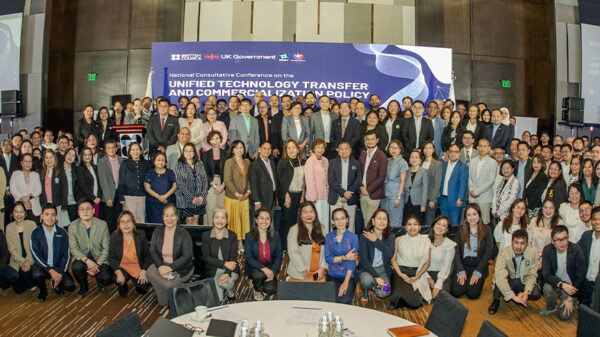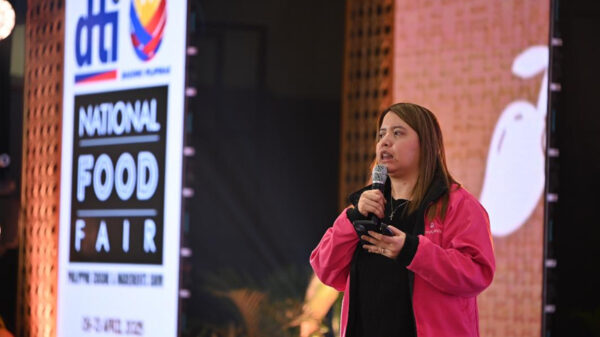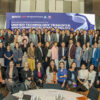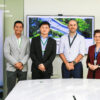The British Council, in collaboration with the Department of Science and Technology (DOST), convened over 200 stakeholders from government, higher education institutions, research organizations, and the private sector in a national consultative conference focused on drafting the “Technology Transfer Policy Framework for DOST,” a unified policy framework for technology transfer and commercialisation in the Philippines.
Supported through the UK’s International Science Partnerships Fund (ISPF) implemented by the British Council, the conference strengthens research and innovation ecosystems in the Philippines and across the region. The event builds on previous policy write shops held in February and March this year.
Lloyd Cameron, Economic and Climate Counsellor at the British Embassy Manila, highlighted the vital role of innovation.
“Without innovation, society cannot move forward. We won’t be able to address inequalities or the urgent challenges facing our world — from climate to energy and beyond. This is why technology transfer and commercialization are essential,” Cameron said.
In collaboration with the DOST, the initiative bolsters the foundation for a more effective approach to tech transfer which will harness university research to jumpstart high-impact enterprises.
In his remarks, DOST Secretary Renato Solidum reaffirmed the agency’s commitment to enabling innovation-driven enterprises, “We are working towards establishing the Philippines as a hub for globally competitive technologies and solutions.”
Participants shared their insights in a policy write shop and discussion led by UK-based consultants Dr. Irene Dal Poz and Dr. Fabio Bianchi of innovation management and technology commercialization consultancy firm, Oxentia Ltd. Participants also interacted with a panel on international practices in technology transfer, with insights from the World Intellectual Property Organization (WIPO), the National University of Singapore, Origgin Singapore, and key Philippine institutions.
The Technology Transfer Policy Framework for DOST is expected to be finalized in April 2025.















































































































